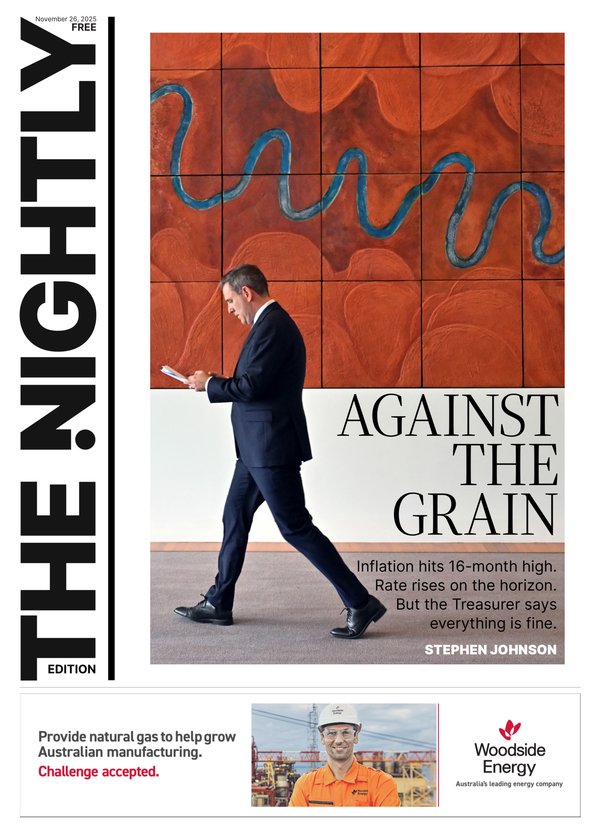How sports tourism will make Australia $4.6 trillion by 2032: The green and gold decade
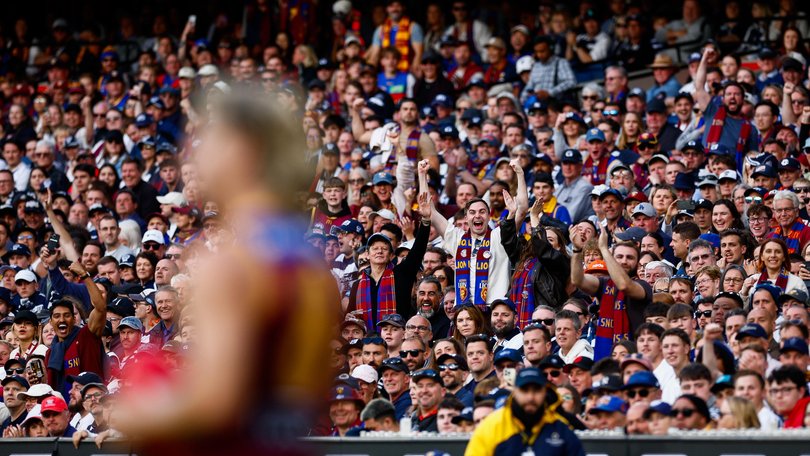
Sport is the new passport stamp — an excuse to go somewhere, stay longer and spend big.
And Australia, with its endless calendar of world-class events — from cricket and tennis in summer, myriad football codes in winter, golf or horse racing in the spring or Formula One in autumn — and cinematic backdrops, is perfectly placed to cash in on the billions currently being bounced about.
“International sporting events are so important,” Tourism Australia’s acting managing director Robin Mack tells ROAM.
“They bring fans to Australia to watch the event and that provides a significant boost to our visitor economy.”
ROAM. Landing in your inbox weekly.
A digital-first travel magazine. Premium itineraries and adventures, practical information and exclusive offers for the discerning traveller.
By continuing you agree to our Terms and Privacy Policy.“But those events also attract significant TV audiences abroad and that gives us an opportunity to promote what Australia has to offer outside of our stadiums.”
Sports tourism is one of the fastest growing travel trends, worth $934 billion globally according to UN Tourism, the Madrid-based agency for tourism within the United Nations.
By the time Brisbane hosts the Olympic and Paralympic Games in 2032, National Geographic is projecting a four-fold acceleration of the sector into a $4.6 trillion juggernaut.
Australia — along with other sports event meccas Spain, the US, Japan, the UK and South Africa — is primed to be one of the biggest beneficiaries. Unlike Saudi Arabia — which has invested more than $10b in staging sports since 2021 (drawing 2.6m visitors to world-title boxing, ATP tennis, even America’s Cup sailing) — Australia has the lifestyle and locations to cash-in more widely.
“Sports tourism is seeing monumental growth and now represents 10 per cent of all global tourism spending,” says Michelle Ashcroft, chief operating officer of Phil Hoffman Travel.
“Since COVID, travellers are seeking immersive and authentic experiences. The trend now is for curated itineraries and seamless package experiences. No one is doing that better than Australia, with major sport events offering easy add-ons to beautiful places, amazing food and cultural immersions.”
The Australian Sports Commission has hailed a ‘Green and Gold Decade’ marked by staggering international sport tourism figures
Although Australia is a magnet for overseas travellers, plenty of sports tourism is driven from within. According to Expedia Group, 82 per cent of Australians plan to take a sports-focused trip in the next year, with the average break a four-day odyssey built around one sports event with more than $2,600 to be dropped on flights and accommodation, plus $650 on dining, shopping and sightseeing.
And they’ll pay a premium for insider access.
“Our AFL grand final packages included tickets, transfers, lunch and kick-ons to cocktail parties,” says Simon Lethlean, CEO of new venture MyWay, who customise big-ticket experiences.
“We had groups of grand-final-winning players mingling with the guests and behind-the-scenes tours of the stadium but none of the hassle of procuring tickets, getting there or wondering what to do before or after the game.”
Ben McAuliffe, who runs tours of Melbourne Cricket Ground for the upcoming men’s Ashes, says: “Sport has an incredible ability to bridge languages and cultures (and) witnessing sport in another country is to witness locals in their natural state. It’s one of the best ways to get to know a place and its people.”
Like the teams they follow, sports travellers tend to migrate in big groups (AirBnB claims a 280 per cent increase in groups of eight-plus for the Ashes). They spend bigger too.
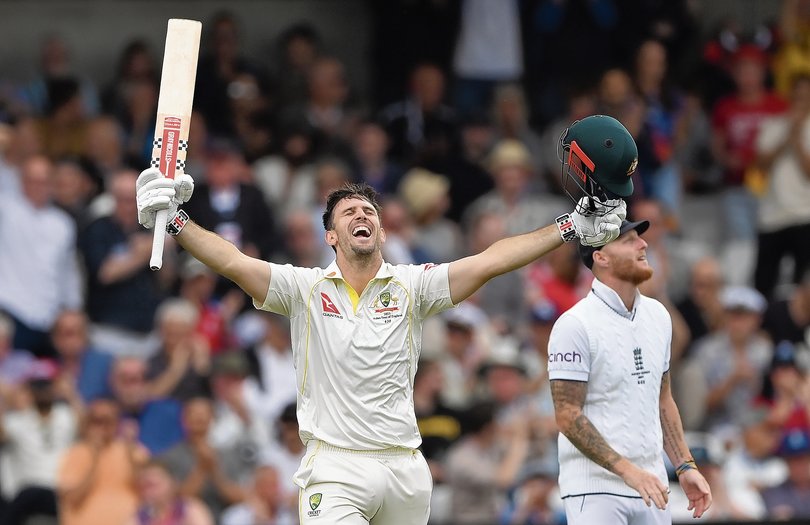
“The Ashes comes to Australia every four years and runs November 21 to January 8 with Tests held in cities around the country — so visitors stay longer, explore more and contribute greatly to local business,” says Mack.
Earlier this year, the 2025 British & Irish Lions rugby tour (which only thunders Down Under every 12 years) resulted in 80,000 hotel beds booked, 15,000-plus flight movements for 40,000-plus tourists and a $130m cash injection.
The Lions Army were internationals whereas interstaters almost solely fired the $205m NRL grand final trifecta: Brisbane against Melbourne but hosted by Sydney.
Increasingly, Australia is reverse-engineering sports for tourists, unifying multiple games at a single destination to bring visitors to a city and surrounds.
The AFL convenes Gather Round in Adelaide in April. The NRL hosts Magic Round in Brisbane in May. Sydney harnesses the telegenic powers of its harbour in August with the Sydney Marathon, officially one of the world’s Marathon Majors, to attract more than 33,000 runners, most travelling with families.
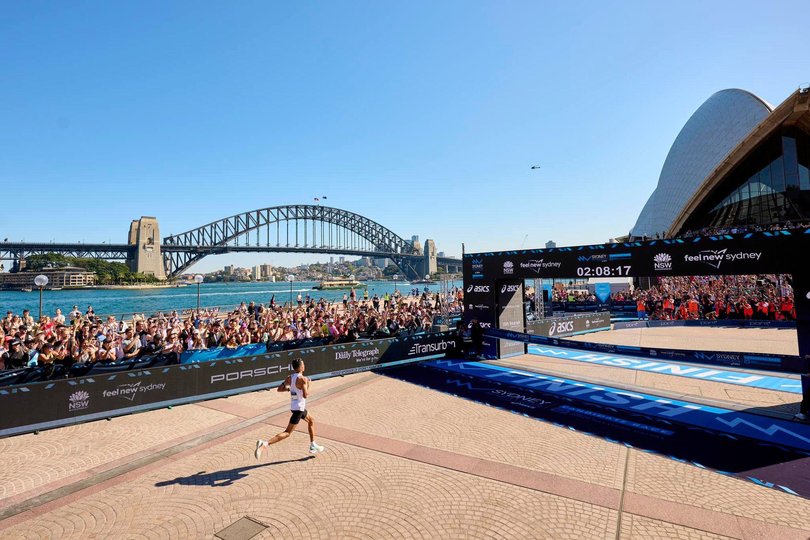
With its moneyed — and in regard to the LIV juggernaut, crazed — fans, golf is another draw for travellers chasing memorable holidays built around a multi-day sports event.
“Sport is positive — it brings people together and brings joy,” says Alex McLean, general manager of marketing for BMW, sponsor of the Australian PGA in Queensland (November 27-30) and the BMW Cup for 100,000 amateur golfers from 50 countries.
“Golf provides the opportunity to connect and engage on many levels — event and location, players and fans.”
The surge of tourists in today’s public galleries is also inspiring the players to greater heights, reckons 2024 PGA winner, Australian prodigy Elvis Smylie.
“Golf is attracting that younger audience, especially with the excitement of the ‘party holes’,” he says.
“That benefits the game and the fans because us players thrive in an environment like that. The Australian PGA in Brisbane is a pioneer event with incredible history. And this year will be bigger than ever.”
Australia’s calendar of annual events is also heavily targeted by globetrotters. The Australian Grand Prix last year drew more than 465,000 fans and pumped more than $268 million into the economy, filling hotels, restaurants and bars all over Melbourne and creating 1,145 full-time jobs.
It pales before the Australian Open in January. “The AO consistently attracts the most international visitors every year,” confirms Mack. Last year’s “Happy Slam” brought 1.2 million fans who each spent a daily average $308, pouring $533m into Victoria’s State coffers.
It’s all part of what the Australian Sports Commission is calling “The Green and Gold Decade”. This era of adrenaline began with soccer’s 2023 Women’s World Cup (the first WWC to ‘break even’, pulling in $1.32b).
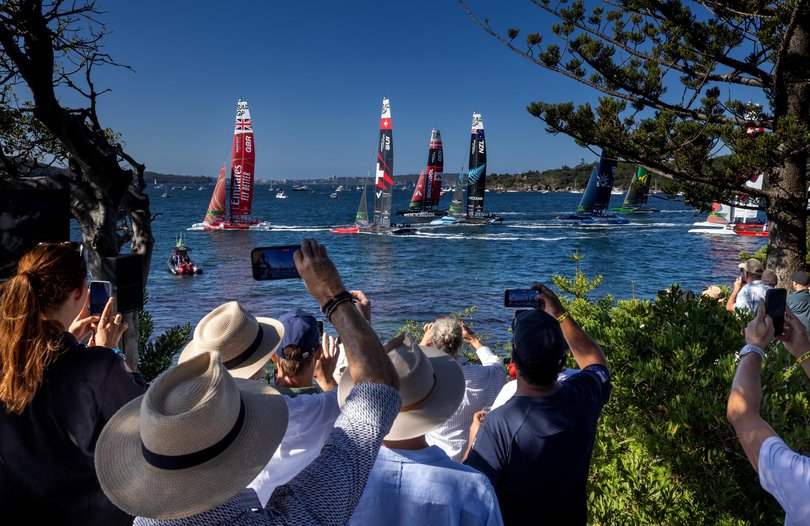
It continues through next year’s Rolex SailGP to the Rugby League World Cup and the 2027 men’s, and women’s 2029, Rugby World Cups, six-week tournaments of 24 nations expected to draw 215,000 visitors (plus hundreds of millions of global TV viewers) and a $610m windfall. The golden decade then reaches a crescendo with the Brisbane Olympics & Paralympics in 2032.
“There is really nothing like the Olympics when it comes to showcasing a destination,” says Mack. Forget Paul Hogan’s iconic “shrimp on the barbie” tourism campaign in the eighties. The 2000 Sydney Olympics was “the most significantly beneficial event in the history of Australian inbound tourism … credited with accelerating the development of Australian tourism by 10 years.”
The wider value to the nation was even more impactful.
“It showcased (Australia) to the world with four billion people tuning in on TV, and deepened the world’s understanding of our culture while driving a surge in international arrivals for holidays for years afterward. Sport was the catalyst for all that.”
The 2025/26 Ashes cricket series starts on November 21. Watch and stream live at 7plus.com.au/cricket.
